Related Research Articles

A neonatal intensive care unit (NICU), also known as an intensive care nursery (ICN), is an intensive care unit (ICU) specializing in the care of ill or premature newborn infants. The NICU is divided into several areas, including a critical care area for babies who require close monitoring and intervention, an intermediate care area for infants who are stable but still require specialized care, and a step down unit where babies who are ready to leave the hospital can receive additional care before being discharged.

Montreal Children's Hospital is a children's hospital in Montreal, Quebec, Canada. Founded in 1904, it is affiliated with the McGill University Health Centre (MUHC) and McGill University, Faculty of Medicine.
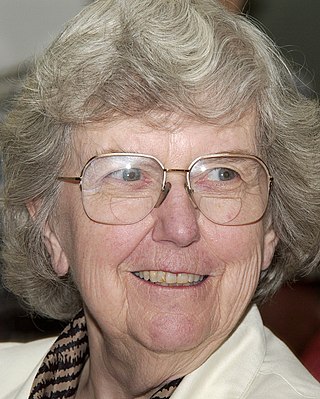
Mary Ellen Avery, also known as Mel, was an American pediatrician. In the 1950s, Avery's pioneering research efforts helped lead to the discovery of the main cause of respiratory distress syndrome (RDS) in premature babies: her identification of surfactant led to the development of replacement therapy for premature infants and has been credited with saving over 830,000 lives. Her childhood, mentors, drive, and education inspired Avery to be the visionary that she was. In 1991 President George H.W. Bush conferred the National Medal of Science on Avery for her work on RDS.
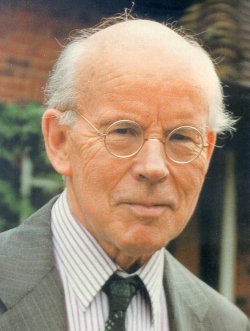
Sir John Peter Mills Tizard was a British paediatrician and professor at the University of Oxford. Tizard was principally notable for important research into neonatology and paediatric neurology and being a founder member of the Neonatal Society in 1959. Tizard was considered the most distinguished academic children's physician of his generation.
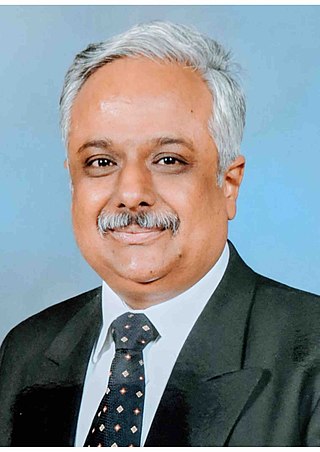
Dr. Karthik Nagesh is a neonatologist in India. He has been practicing neonatal intensive care since 1992 at the Manipal Hospital in Bangalore. He is well known in India for his pioneering work in intensive care for sick neonates especially, Surfactant Therapy and ventilation for sick babies with respiratory distress. He is currently the Chairman of the Manipal Advanced Children's Center and Chairman and HOD of Neonatology and Neonatal ICUs at the Manipal Hospitals Group as well as an adjunct professor of paediatrics, KMC at Manipal University.
Douglas Montagu Temple Gairdner FRCP was a Scottish paediatrician, research scientist, academic and author. Gairdner was principally known for a number of research studies in neonatology at a time when that subject was being developed as perhaps the most rewarding application of basic physiology to patient care, and later his most important contributions as editor, firstly editing Recent Advances in Paediatrics, and then of Archives of Disease in Childhood for 15 years, turning the latter into an international journal of repute with its exemplary standards of content and presentation.
Neelam Kler is an Indian neonatologist, known for her pioneering work on neonatal intensive care and ventilation. She is credited with developing neonatal care to better the survival rate of extremely tiny preterm babies to 90 percent. The Government of India honoured her with the third-highest civilian award, Padmabhushan, in 2014, for her services to the fields of medicine and neonatology.
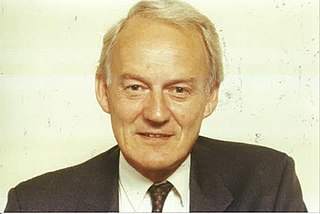
Sir David Hull was a British paediatrician. Hull was most notable for research and for a paper he published in 1963 in the Journal of Physiology with Michael Dawkins, about research into brown fat, an adipose-like tissue found in hibernating animals and in the human Infant and for later contributions considered outstanding in research conducted on Lipid metabolism and Thermoregulation.
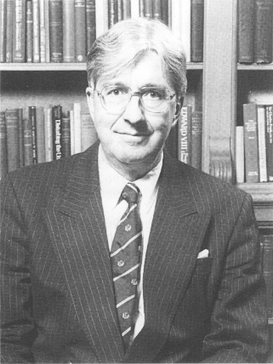
Edward Osmund Royle Reynolds, was a British paediatrician and neonatologist who was most notable for the introduction of new techniques intended to improve the survival of newborns, especially those with respiratory failure, and for a series of papers regarding the value of techniques such as ultrasound imaging, nuclear magnetic resonance spectroscopy, and near infrared spectroscopy in determining the development and response to injury of the infant brain after birth.
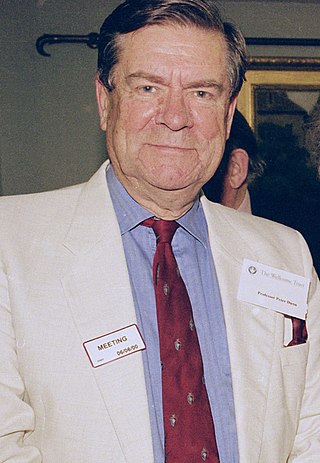
Peter MacNaughton Dunn was an English paediatrician. Dunn was most notable for introducing into the UK the Gregory box in 1971, that provides Continuous positive airway pressure in the treatment of infant respiratory distress syndrome of the newborn and conducting research into Hip dysplasia and fetal adaptation to extrauterine life. Dunn was also notable for being known for founding the charity association British Association of Perinatal Medicine.
Leonard Birnie Strang FRCP was a Scottish born, British professor of Paediatric sciences and was a Secretary of the Paediatric Committee of the Royal College of Physicians. He was considered an outstanding clinical observer, contributing to the first accounts of harlequinism and of catecholamine secretion in neuroblastoma. However it was his later work that Leonard Strang became famous, leading a team over two decades studying pulmonary vasculature in the perinatal period and even more the central role that secretion of lungs containing fluid plays in lung formation and preparation for birth.
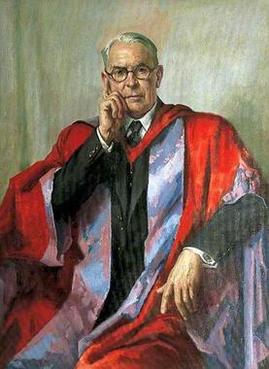
Sir Alan Aird Moncrieff, was a British paediatrician and professor emeritus at University of London. He was most notable for developing the first premature-baby unit in 1947. It was Moncrief who recognised and developed the concept of daily parental visits to the ward, which he developed while at Great Ormond Street, well before the need for this became recognised, and with his ward sister, published an article on Hospital Visiting for Children in 1949.

Seymour Donald Mayneord Court was a British paediatrician who was known for his achievements in the fields of respiratory disease and the epidemiology of disease in childhood. He was also known for working, in a primary role, that established the importance of research into the social and behavioural aspects of illness in childhood.

Sir Kenneth William Cross FRCP was a British physiologist who was principally known for his fundamental contributions to the physiology of newborns that are relevant to paediatric practice.

David Robert Harvey was a British paediatrician and considered by his peers to be a champion of the less privileged. Harvey was most notable for developing the training of neonatal medicine doctors at a time when the speciality had no official recognition. Harvey was homosexual and never afraid to disclose it, even at the beginning of his career, when homophobia was more prominent.

John Allen Davis is a British paediatrician and the first professor of paediatrics at the University of Cambridge, later becoming emeritus. Davis was most notable for major research contributions to newborn physiology, particularly to the understanding of apnoea in the neonatal period.
Andrew Wilkinson is a British paediatrician who is a Professor Emeritus of Paediatrics and Perinatal Medicine at All Souls College, Oxford. Wilkinson is most notable for being an international authority in neonatology and a lead author of the Standards of Care for NICU and NICE guidelines on retinopathy of prematurity.
Neil McIntosh is a British and Scottish paediatrician and neonatologist who was most notable for being the leading writer of a pivotal article that defined standards of ethical behaviour in paediatrics, including withdrawal of newborn intensive care. McIntosh is emeritus professor of Neonatology and Child Life and Health at the University of Edinburgh. During McIntosh's career he has researched mineral metabolism in preterm infants, computerised acquisition of physiological data in Neonatal Intensive Care Nursing.
Christian P. Speer is a German pediatrician and Professor of Pediatrics specialized in neonatology at the Julius Maximilian University of Würzburg. Speer is known for his scientific and educational contributions in neonatal medicine.
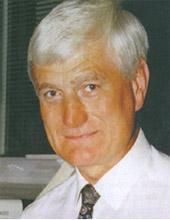
Henry Lewis Halliday was a British-Irish paediatrician and neonatologist. In 2021, Halliday was awarded the James Spence Medal for research into neonatology, for coordinating two of the largest neonatal multicentre trials for prevention and treatment of a number of neonatal respiratory illnesses and for a breakthrough in the development of a new lung surfactant that brought relief to very small babies suffering from infant respiratory distress syndrome (RDS).
References
- 1 2 Mammas, Ioannis N.; Spandidos, Demetrios A. (October 2017). "The educational challenge of Paediatric Virology: An interview with Professor of Neonatology Anne Greenough". Experimental and Therapeutic Medicine. 14 (4): 3332–3334. doi:10.3892/etm.2017.5007. PMC 5639338 . PMID 29042914.
- ↑ "Professor Anne Greenough". The Royal College of Paediatrics and Child Health. 2 March 2017. Retrieved 16 December 2017.
- ↑ "James Spence Medal". Kings Health Partners. 15 June 2017. Retrieved 10 November 2018.